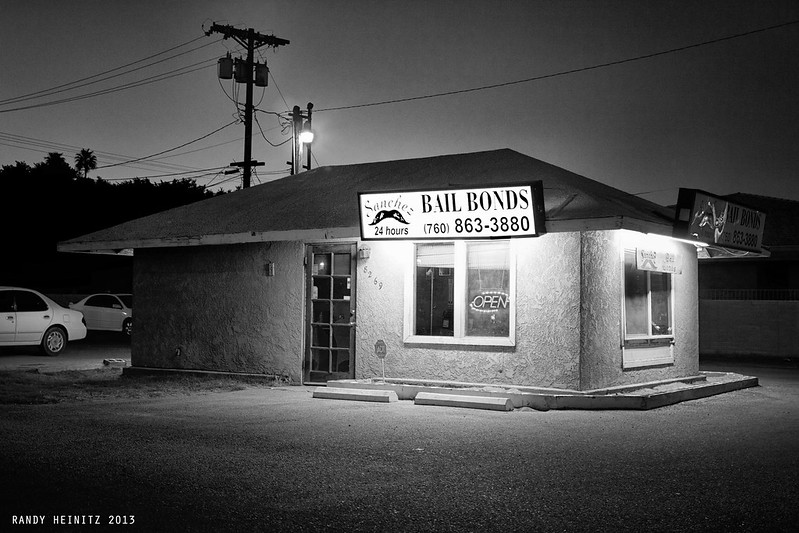Sometimes it’s hard to realize just how peculiarly awful some American institutions are. Take the American cash bail system:
In America, if the police arrest you for (allegedly) committing a crime, they can put you in jail until you go on trial. In most cases, you can “bail out” of jail by lending a certain amount of money to the courts, to be returned when you show up to trial. The amount of money is often more than most people have, so you can borrow money from a bail bonds company; the catch being that (a) there is a large, non-refundable fee and (b) if you don’t show up to court, the bail bonds company, a private entity, can hunt you down and arrest you. Even then, many people who land in jail can’t afford bail bonds either, so many people who land in jail choose to plead guilty (even to a crime they did not commit) rather than rot in jail waiting for a trial.
Given the deeply entrenched nature of bail in American culture, it may come as a shock that this system is nearly unheard of outside the U.S. In fact, only two other countries, the Philippines and Liberia, use a monetary bail system. In most countries, if you get arrested and go to jail, the courts decide whether you have to stay there until your trial based on your risk to the public, and whether you have skipped out on previous court trials.
In August 2018, the Governor signed SB 10, replacing cash bail in California with a pretrial risk assessment system similar to those used in other functioning democracies. But the bail bonds industry, fearing extinction, collected enough referendum petition signatures to force SB 10 to go to the California voters before it could take effect. That’s right: Prop 25 is not an initiative, it’s just an ordinary law, waiting for your approval.
SB 10 a.k.a. Prop 25 is far from perfect, but it is a good start. If passed, courts would use a risk assessment tool that would classify someone accused of a crime as either minimum-, medium-, or maximum-level offenders mainly looking at their criminal history and seriousness of crimes committed. A minimum-level offender, would be released on their own recognizance, that is, they would be trusted to show up to court. A maximum-level offender would not be allowed bail and would remain in jail until their case were resolved. For a medium level offender, it would be up to a judge. In any case, the person’s ability to pay would not figure into it.
So far so good, but so much depends on the details of the pretrial risk assessment tool. California has a high recidivism (repeat offense rate), so someone repeatedly arrested for a not very serious crime could easily find themselves classified as a maximum-level offender. Even a fair algorithm that is too heavily weighted towards keeping people in jail would increase our jail population which (see Prop 10), is already alarmingly high. Pretrial risk assessment tools must be approved by the California Judicial Council (the higher courts, more or less). One reason for hope is that, according to the text of SB 10, these tools must “be demonstrated by scientific research to be accurate and reliable” and “minimize bias.” Another is that San Francisco has been operating without cash bail for over a year now, without a massive increase in its jail population.
The sad fact is that racial bias exists throughout our criminal justice system: from police, to judges, to witnesses who show up at trials, to the availability of economic opportunities that keep people out of jail in the first place. But as it stands, while we can measure evidence of racial (and economic) bias in the criminal justice system, we can only fight it one trial, one judge, one DA at time. But voters approve ending cash bail, and some California counties start to use a pretrial risk assessment tool that is inaccurate or biased, this law gives us the tools to fight in court to change the rules of the assessment tool itself. We no longer have to argue that “the system” is broken; we just have to show that an algorithm is broken and can demonstrably be improved.
We recommend you vote yes on Prop 25. We also recommend that the Philippines, Liberia, and yes, even the United States consider that keeping people in jail based on their ability to pay just might be one of the worst ideas ever.

